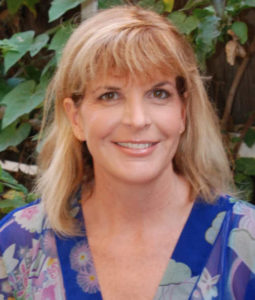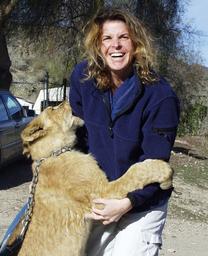Spotlight on Animal Heroes:
NYSHA Recognizes Dr. Jennifer Conrad, The Paw Project

With so much yet to accomplish to prevent animal cruelty on countless levels worldwide, gratitude and respect for people like Dr. Jennifer Conrad are such inadequate words for her accomplishments.
Dr. Conrad has used her time and talents to benefit both domestic and wild animals on six continents. Over two decades she has personally seen the exploitation of animals and destruction of habitat, and has worked with sea lions, rhinos, cheetahs, elephants, and other wildlife, making a huge impact on enriching and saving their lives. Among her other responsibilities, Jennifer now works with wildlife sanctuaries and also has her own company, providing humane veterinary care to animal actors.

She founded The Paw Project to rehabilitate big cats — lions, tigers, etc. — maimed by declawing, and is currently volunteering her amazing energy, empathy, and skills to outlaw this mutilation of domestic cats. Thanks to her leadership, New York’s declawing ban was finally passed — see our lead story.
It would be impossible to do justice to a life so well lived in the little space we have here, but we were able to find out a little more when she graciously took some time to answer a few questions.
Did you always feel strongly about animals or was there a turning point that created such empathy? I grew up steeped in human medicine. My whole family is made up of human doctors. I knew that in the future there will be lots of humans, but there might not be any tigers or elephants or rhinos. I wanted to focus on them. Plus, the benefit of being a veterinarian is that you can treat every species on the planet except one.
Do you have any heroes? Yes. Dr. Holly Cheever is my hero. She is an unwavering advocate for animals who started the movement from sheer will and persistence.
In your work with wildlife, what have been your most successful programs? I love The Paw Project . I love that with surgery to repair the paws of animals who suffer from declawing, we can give them back some comfort and mobility, often enough to give them a good quality of life.
You have been to some unusual places! What were some of your biggest challenges and your biggest successes? I think one of the biggest challenges was in Namibia dehorning rhinos in order to try to protect them from poachers. It was devastating to find out that poachers would kill them anyway because they didn’t want to waste time by tracking a hornless rhino. Some of the best successes were with Save Elephant Foundation (in Thailand and Cambodia) where we could care for former trekking elephants and give them sanctuary.
In the late 90’s NYSHA monitored the animal action in a movie and was not impressed with the system. Do you think it has improved since then? Monitoring animals in films is a way to advocate for humane care and talk to others, especially influential actors and directors, about the plight of animals in general. I have worked with animals who really seemed to enjoy their jobs on set and the crew did everything they could to make the “talent” comfortable.
What gives you hope? The growing numbers of vegans in the world. I hope they are vegan for the animals, but at this point, I will take vegan for any reason as a good start.
What frustrates you the most? I am frustrated by indifference. The world is changing rapidly — and often, not for the better. Many people feel that they can’t make a difference by themselves. The truth is, each person’s contribution is what makes a difference. Doing what is right and leading by example makes a big difference.
What advice do you have for animal advocates to stay in the fight? Choose your primary issue and focus. Still be part of the rest of the important issues, but put your energy into pushing your issue forward.
How do you stay so strong in the face of adversity? In my life, by banning declawing, I have made a lot of declawing veterinarians very angry at me, but, by banning declawing, I have not made any cats angry at me and I work for the cats.
Anything else you would like to add? In deciding how to treat an animal, remember, compassion has a wide berth. If we use empathy as our guide, what we can and cannot do to animals becomes crystal clear. Even though it is often said that we can declaw with compassion, we certainly can’t declaw with empathy, so the choice becomes quite clear when empathy is guiding us.
Thank you, Dr. Conrad. Your work is unique and fascinating, and you are now one of NYSHA’S heroes!
New York State Humane Association Humane Review, Vol.XXXIV Fall 2019.